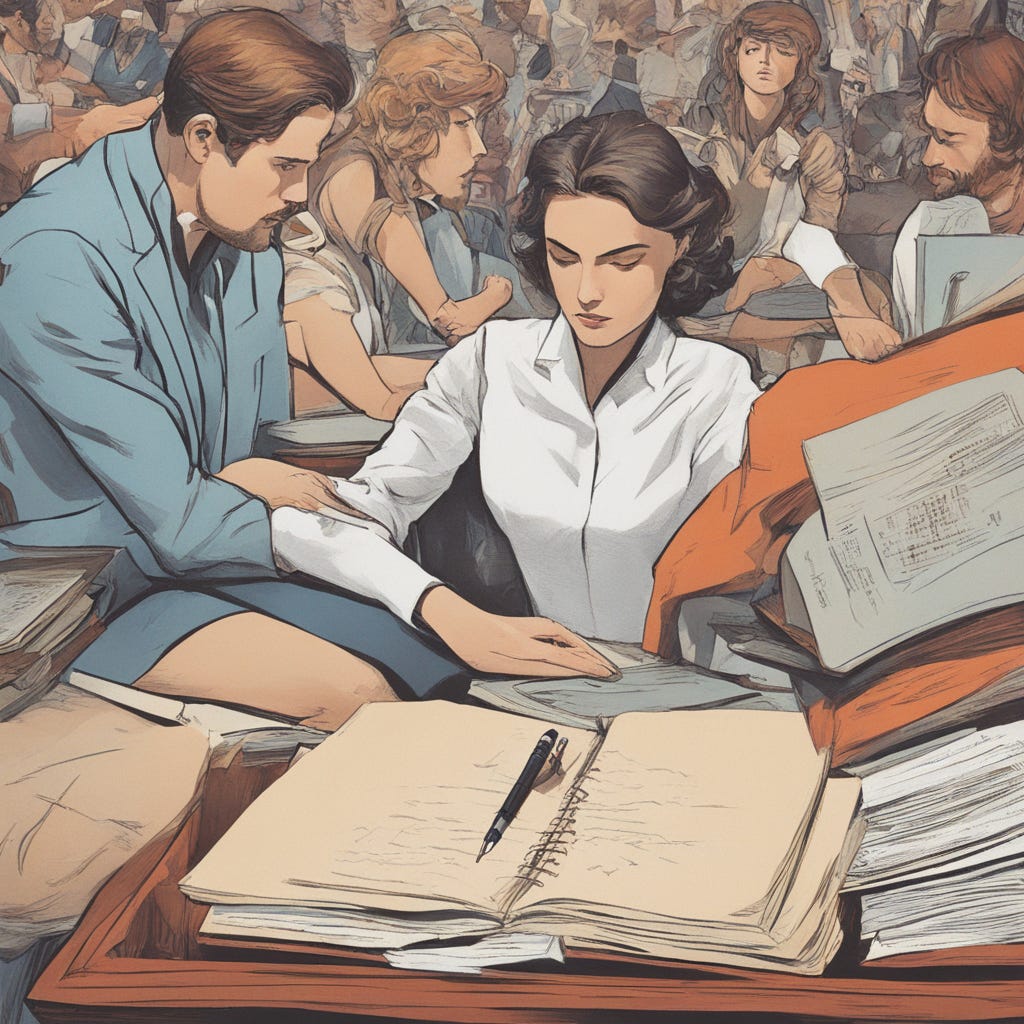The men of our Substack have been sharing their unpopular or controversial opinions lately, about everything from Star Trek to Star Wars (I vaguely understand that those are two different things?), and even superheroes. Unfortunately, I personally have but one such opinion to offer on those subjects:
They're obnoxious.
Oh, I know you disagree! That's why I said it's a (truly) controversial opinion! But I stand behind it: if there's a sci-fi or superhero movie or TV show making news, you can bet your bottom dollar that I will refuse to even consider seeing it. In fact, I'll do my damnedest not to know a single thing about it.
But that's not much content. Instead, I turn here to the reason we're all here: we either love reading or we love writing! Actually, I bet we love both.
So, as a longtime writer and editor now gearing up to bring books to market, I offer some unconventional opinions on writing. These are culled from my early experiences working with my parents, who are and were both writers, editors, and English teachers/profs, as well as my own writing, editing, and MS-reading.
1.) An extremely niche idea can have a market. Want to write the authoritative work on collectible Longaberger baskets, or the thrilling tale of the intrigues of the cheese knife industry? It's not necessarily a hard “no!” Just send your proposal to a publishing company that has put out similar titles - then show us in your proposal that there's a market for your topic. Statistics help - we wordy types are easily intimidated by numbers.
2.) Don't type out dialect. It makes me cringe, it makes other editors cringe, it makes the reader cringe, and someone's going to be offended. Instead, find ways to subtly allude to the character's accent.
3.) Don't start your book or short story with the character’s first and last name. I don't want to open your document and be greeted with, “Katie Walker took a deep breath, straightened her shoulders, and knocked on the door,” or “Sean Fernandez knew right away that he'd just made a horrible mistake.” Show us who your characters are - let us encounter their last names naturally.
4.) Your author persona matters as much as - maybe more than - the quality of your writing, especially if you're hoping to be published for the first time.
5.) Formulaic works don't have to suck! Create engaging characters and fun settings, then throw in high stakes to make your formula feel fresh.
6.) Your unusual or difficult phase of life will only make a great memoir if you demonstrate why your own experiences are very different from what's already out there - and if you have the distance necessary to write about your experiences objectively.
7.) If you are a man writing a female character, DO NOT - I repeat, DO NOT - refer to, or, God forbid, describe her breasts unless it's within a sex scene or cancer is part of the plot. Just don't.
8.) A respectable book that a publisher will be honored to put out is not the same as a likely best-seller.
9.) If your writing group “loved it,” that probably doesn't mean much. Most writing and critique groups are too friendly with each other - or not technically skilled enough - to dish out the hard criticism we all need from time to time. To turn our great ideas into well-written, compelling books, we need feedback from sources who aren't worried about not hurting our feelings. This is as true for the newbie writer as it is for the household name.
10.) All writing matters: your to-do list, your social media, your journal, your random guest essay, your embarrassing college poetry, and your current novel. Keep doing all of it.
What do you think?







This list gave me the urge to start a novel with the line "Katie Walker took a deep breath which caused her medium sized breasts to rise slightly, as breasts do when one breaths deeply." I believe this is an excellent start to a novel. Rules are made to be broken.
So if I wrote a female protagonist without once inserting any Ode to Anatomy ... but she's a superhero ... do I get a checkmark or a citation? Or have I created a paradox?